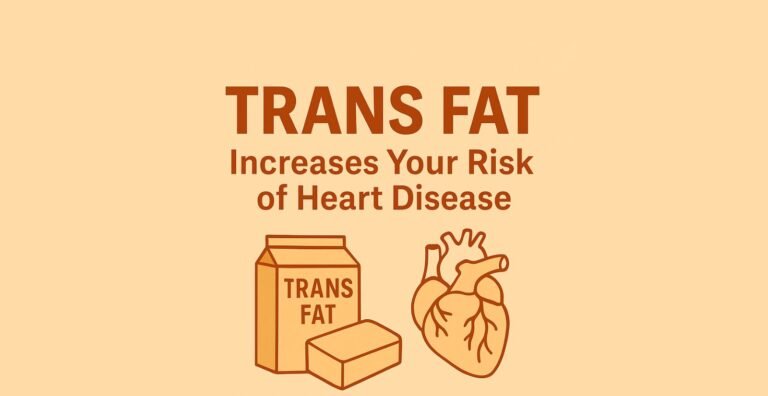Top Health & Wellness Product Reviews with Exclusive Sale Prices!
The Long-Term Keto Diet: Health Benefits and Risks Explored

The ketogenic diet, commonly known as the keto diet, has gained immense popularity over the past decade as a quick and effective way to shed pounds and improve overall health. But what happens when you follow this high-fat, low-carbohydrate diet for an extended period? In this article, we will delve into the long-term health benefits and risks associated with the keto diet, providing you with a balanced perspective to help you make informed decisions about your dietary choices.
Understanding the Keto Diet
The keto diet is a low-carb, high-fat diet that aims to shift the body’s primary source of energy from carbohydrates to fats. By drastically reducing carbohydrate intake and increasing fat consumption, the body enters a metabolic state called ketosis. In ketosis, the liver converts fats into ketones, which become the main energy source for the body and brain.
The Health Benefits of Long-Term Keto Diet
1. Weight Loss and Maintenance
One of the most significant benefits of the keto diet is its potential for weight loss and weight maintenance. By reducing carbohydrate intake, the body relies on fat stores for energy, leading to a decrease in body fat. Many individuals find that the keto diet helps them achieve and maintain their desired weight more effectively than other diets.
2. Blood Sugar Control and Diabetes Management
The keto diet can be particularly beneficial for individuals with type 2 diabetes or those at risk of developing the condition. By minimizing carbohydrate intake, the diet helps stabilize blood sugar levels and reduce insulin resistance. Some studies have shown that the keto diet can lead to significant improvements in HbA1c levels, a marker of long-term blood sugar control.
3. Improved Mental Clarity and Focus
Many proponents of the keto diet report enhanced mental clarity and focus. The brain can efficiently utilize ketones as an energy source, potentially leading to improved cognitive function. Some research suggests that the keto diet may have neuroprotective effects and could be beneficial for individuals with neurological conditions such as Alzheimer’s disease and epilepsy.
4. Increased Energy Levels
Once the body adapts to burning fat for fuel, many individuals experience increased energy levels and improved endurance. The steady supply of ketones provides a consistent source of energy, preventing the energy crashes often associated with high-carbohydrate diets.
5. Reduced Inflammation
Chronic inflammation is linked to various health conditions, including heart disease, diabetes, and autoimmune disorders. The keto diet has been shown to reduce markers of inflammation in the body, potentially lowering the risk of these chronic diseases.
6. Heart Health
While the keto diet is high in fats, it can still be heart-healthy if the right types of fats are consumed. Emphasizing healthy fats from sources like avocados, nuts, seeds, and olive oil can help improve cholesterol levels by increasing HDL (good) cholesterol and decreasing triglycerides.
The Risks of Long-Term Keto Diet
1. Nutrient Deficiencies
One of the primary concerns with the long-term keto diet is the potential for nutrient deficiencies. By restricting carbohydrates, individuals may miss out on essential vitamins and minerals found in fruits, vegetables, and whole grains. Deficiencies in fiber, vitamin C, magnesium, and potassium are common among those following a strict keto diet.
2. Digestive Issues
The lack of fiber from fruits, vegetables, and whole grains can lead to digestive issues such as constipation and bloating. Fiber is crucial for maintaining a healthy gut and regular bowel movements, and its deficiency can negatively impact digestive health over time.
3. Heart Health Concerns
While the keto diet can improve certain heart health markers, it can also pose risks if unhealthy fats are consumed. A diet high in saturated fats and trans fats can increase LDL (bad) cholesterol levels, leading to an elevated risk of heart disease. It is essential to prioritize healthy fats and avoid processed and fried foods.
4. Kidney Stress
The high intake of animal proteins in the keto diet can put extra stress on the kidneys. This is particularly concerning for individuals with pre-existing kidney conditions or those at risk of developing kidney stones. It is important to monitor protein intake and stay adequately hydrated to reduce the strain on the kidneys.
5. Bone Health
The keto diet may negatively impact bone health over time. Some studies have shown that a low-carbohydrate, high-fat diet can lead to a decrease in bone density and an increased risk of fractures. This is likely due to the reduced intake of calcium-rich foods like dairy products and certain vegetables.
6. Social and Lifestyle Impact
Adhering to a strict keto diet can be challenging in social settings and may impact your overall lifestyle. The diet’s restrictions can make it difficult to enjoy meals with family and friends, and it may require significant planning and preparation. This can lead to feelings of isolation and frustration over time.
Finding a Balanced Approach
While the keto diet offers several health benefits, it is essential to approach it with caution and balance. Here are some tips to help you maintain a healthy keto lifestyle in the long term:
- Prioritize Nutrient-Dense Foods: Focus on consuming a variety of nutrient-dense foods, including non-starchy vegetables, healthy fats, and high-quality proteins. Consider incorporating keto-friendly fruits like berries in moderation.
- Monitor Your Health: Regularly monitor your blood sugar levels, cholesterol, kidney function, and bone health. Consult with a healthcare provider to ensure that you are meeting your nutritional needs and to address any potential health concerns.
- Stay Hydrated: Proper hydration is crucial for overall health and can help prevent kidney stones and other kidney-related issues. Drink plenty of water and consider electrolyte supplements if needed.
- Incorporate Fiber: Include high-fiber, low-carb vegetables like leafy greens, broccoli, and cauliflower to support digestive health. You can also consider fiber supplements if necessary.
- Balance Your Fats: Choose healthy fats from sources like avocados, nuts, seeds, and olive oil. Limit your intake of saturated and trans fats to support heart health.
- Listen to Your Body: Pay attention to how your body responds to the diet and make adjustments as needed. If you experience adverse effects or find the diet difficult to maintain, consider modifying your approach or consulting a nutritionist.
Conclusion
The long-term keto diet can offer several health benefits, including weight loss, improved blood sugar control, and increased energy levels. However, it is not without its risks, such as nutrient deficiencies, digestive issues, and potential heart and kidney concerns. By adopting a balanced approach and prioritizing nutrient-dense foods, you can enjoy the benefits of the keto diet while minimizing its potential downsides. Always consult with a healthcare provider before making significant changes to your diet, and remember that the best diet is one that supports your overall health and well-being.







